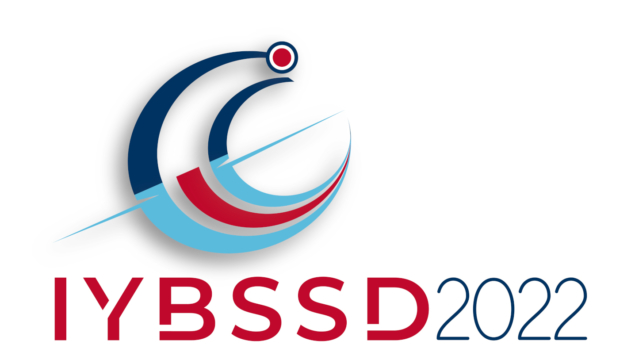The International Year of Basic Sciences for Sustainable Development 2022 is a call to action for particle physicists to promote the links between curiosity-driven research and sustainable development, says Michel Spiro.

The COVID-19 pandemic has cost more than five million lives and disrupted countless more. Without the results of decades of curiosity-driven research, however, the situation would have been much worse. The pandemic therefore serves as a stark and brutal reminder of the links between basic science and the balanced, sustainable and inclusive development of our planet.
The International Year of Basic Sciences for Sustainable Development (IYBSSD), proclaimed by the United Nations (UN) general assembly on 2 December 2021, is a key moment of mobilisation to convince economic and political leaders, as well as the public, of the critical links between basic research and the 2030 Agenda for Sustainable Development adopted by all UN member states in 2015. Due to their evidence-based nature, universality and openness, basic sciences not only contribute to expanding knowledge and improving societal welfare, but also help to reduce societal inequality, improve inclusion and foster intercultural dialogue and peace. They are thus central in achieving the UN Agenda’s 17 Sustainable Development Goals.
Virtuous circle
Many examples of basic sciences’ transformative contribution to society are so widespread that they are taken for granted. The web was born at CERN from the needs of global particle physics; general relativity underpins the global positioning system; search engines and artificial intelligence rely on brilliant mathematics and statistical methods; mobile phones derive from the discovery of transistors; and Wi-Fi from developments in astronomy. The discovery of DNA, positron emission tomography, magnetic resonance imaging and radiotherapy have transformed medical diagnostics and treatments, while advances in basic physics, chemistry and materials science are reducing pollution and revolutionising the generation and storage of renewable energy.
Basic science, together with applied scientific research and technological applications, is thus one of the key elements of the virtuous circle that allows the sustainable development of society. Yet, basic sciences are often not as prominent as they should be in discussions concerning societal, environmental and economic development. The aims of the IYBSSD are to focus global attention on the enabling role of basic science and to improve the collaboration between basic sciences and policy-making.
Particle physics has a major role to play in making the IYBSSD a success
The IYBSSD, led by the International Union of Pure and Applied Physics – which will celebrate its centenary in 2022 – has received strong support from around 30 international science unions and organisations active in physics, mathematics, chemistry, life science and social science, along with 70 national and international academies of sciences, and 30 Nobel laureates and Fields medallists. A series of specific activities coordinated at local, national and international levels will aim to promote inclusive collaboration (with special attention paid to gender balance), enhance basic-science training and education, and encourage the full implementation of open-access publishing and open data in the basic sciences.
The IYBSSD inauguration ceremony will take place at UNESCO on 8 July, and a closing ceremony is planned to take place at CERN in 2023, hopefully timed with the completion of the Science Gateway building. Events of all sorts proposed by countries, territories, scientific unions, organisations and academies endorsed by the steering committee will occur throughout the year.
The role of particle physics
As one of the most basic sciences of all, particle physics has a major role in making the IYBSSD a success. The high-energy physics community should use all the available opportunities in 2022 and 2023, be it through conferences, workshops, collaboration meetings or other activities, to place our field under the auspices of the IYBSSD. We need to show how this community advances science for the benefit of society, how much it re-enchants our world and therefore makes it worth sustaining, how much it contributes in its practice to openness, equity, diversity and inclusion, and to multicultural dialogue and peace. The CERN model is emblematic of these contributions. Many of the programmes of the CERN & Society foundation also promote these values in line with the IYBSSD objectives.
The need for humanity to maintain and develop high levels of interest and participation in basic sciences makes awareness-raising initiatives such as the IYBSSD critical. Following the recent international years of physics, chemistry, mathematics and astronomy, it is now time for us to get behind this unprecedented, global interdisciplinary initiative








